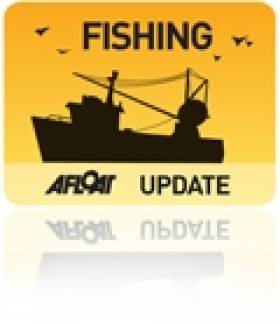Displaying items by tag: Institute of International and European Affairs
EU Fisheries Commissioner Visits Ireland to Discuss Policy
EU Commissioner for Maritime Affairs and Fisheries, Maria Damanaki will visit Ireland this week to discuss reform of the Common Fisheries Policy.
Commissioner Damanaki will speak tomorrow at the Institute of International and European Affairs where she will address Irish stakeholders on the new policy, which aims at preserving fish stocks at sustainable levels by managing fisheries in a responsible, science-based way.
She will also later meet with Minister for Agriculture, Fisheries and Food Simon Coveney.
On Friday she will travel to Galway with EU Commissioner for Research, Innovation and Science, Máire Geoghegan-Quinn, to visit the Marine Institute and participate in a roundtable on maritime policy with representatives of the Irish administration and the Irish maritime sector.
Commissioner Damanaki will also gauge the views of Irish stakeholders on the upcoming Atlantic Strategy under the Integrated Maritime Policy, which the European Commission is currently drawing up.
- EU Commissioner for Maritime Affairs and Fisheries
- Maria Damanaki
- Common Fisheries Policy
- Institute of International and European Affairs
- stakeholders
- sustainable fishing
- fishing
- fisheries
- Minister for Agriculture, Fisheries and Food
- Simon Coveney
- EU Commissioner for Research Innovation and Science
- Máire GeogheganQuinn
- Marine Insitute
- maritime policy
- Atlantic Strategy
- Integrated Maritime Policy
- European Commission
























































